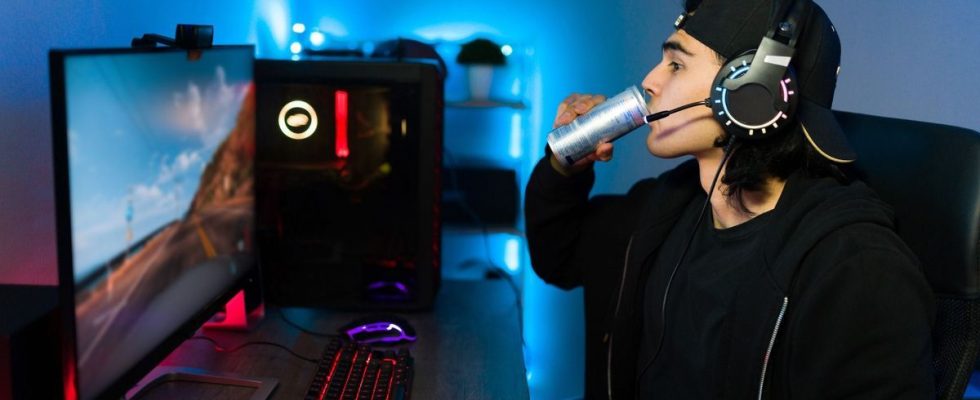Published on
Updated
Reading 3 min.
Not recommended for minors, and even prohibited for young people in certain countries, energy drinks are regularly singled out for their harmful effects on health. After being associated with an increased risk of heart disease and mental health problems, they are implicated in certain sleep disorders, even when consumed occasionally.
Drinks increasingly popular among young people
In France, almost a third of consumers of so-called energy drinks (BDE) say they drink them at least once a week (32%), after a study carried out by the National Agency for Food, Environmental and Occupational Health Safety (ANSES) in 2011. Among those who consume it outside the home, 39% do so in the evenings, 18% in bars and restaurants, 12% in nightclubs, and 18% during concerts, but a significant proportion also enjoys it during a sporting activity (29%).
More than a decade later, these drinks have grown in popularity to the point that some countries, such as England, are calling for them to be banned from sale to minors.
Harms to physical and mental health
It must be said that their impact on health is increasingly documented, with several studies having highlighted their harmful effects on the risk of heart disease, mental health problems and behavioral disorders. And health authorities are also concerned about their role in the eating behavior of young people. Recently, they have been accused of increasing the risk of mental health problems among young people, including anxiety, stress, depression, and suicidal thoughts.
Now, a new study by researchers based in Norway finds that energy drinks are also associated with poor sleep, and even insomnia, among college students. The more they consume, the fewer hours of sleep they get, even if they do it occasionally.
30 minutes less sleep
More than 53,000 adults aged 18 to 35, from a large survey on the health and well-being of students in Norway, participated in this research. The authors asked them about how often they drank energy drinks, what times they got up and went to bed, any difficulty falling asleep they might have had, and how many hours of sleep they got. benefited every night.
The researchers specify that this is an observational study, based not on objective measurements but on self-assessment, not allowing “to draw definitive conclusions“, but nevertheless suggest that the consumption of energy drinks induces an increased risk of sleep disorders among students.
Published in BMJ Open magazine, their work indicates more precisely that daily consumption of so-called energy drinks – not to be confused with energy drinks – induces a reduction of 30 minutes of sleep compared to occasional or no consumption. Researchers also report nocturnal awakenings and difficulty falling asleep at this frequency of consumption. The finding is the same with regard to insomnia, more common among those who say they drink energy drinks every day. Importantly, an increased risk of suffering from sleep disorders was also observed in participants consuming these types of drinks only one to three times per month.
Reduce the consumption of these drinks to sleep better
“The results of the current study show that there is a robust association between frequency of consumption [de boissons énergisantes] and the different sleep parameters. It is essential to identify modifiable risk factors for sleep problems among college students (…), and our results suggest that frequency of energy drink consumption could be a possible target for interventions“, conclude the authors of this work.

